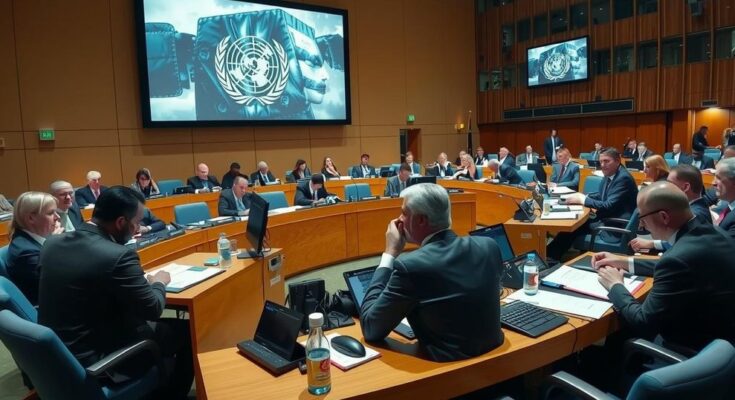Negotiators at the UN climate talks in Azerbaijan are under pressure to reach a financial agreement to support vulnerable nations facing climate change. Developing countries demand $1.3 trillion, significantly exceeding current offers from wealthier nations. Key issues include the total funding amount, the balance between grants and loans, and contributor responsibilities, as COP29 aims to foster a cohesive response to climate challenges.
As negotiations continue at the United Nations climate talks in Azerbaijan, time is becoming a critical factor for reaching an agreement aimed at financing climate adaptation for vulnerable nations. Currently, developing countries are pushing for a funding commitment of $1.3 trillion to assist in addressing the damage caused by climate change and developing clean-energy systems. However, commitments from wealthier nations have thus far fallen short, raising concerns about whether the necessary financial support will be provided before the summit concludes this week. Discussions at COP29 have revolved around establishing a clear financial framework, determining how much of the funding should be classified as grants versus loans, and identifying the contributors to this financial support. Australia’s climate minister Chris Bowen noted various proposals on the funding amounts, while other leaders suggested amounts far lower than the developing nations’ request. Diego Balanza, chair of the Like-Minded Group, emphasized that $200 billion is insufficient to address the needs of vulnerable countries while calling attention to the developed nations’ obligations to provide adequate funding. While commitments to phase out fossil fuels have been reaffirmed by participants, significant hurdles remain, with analysts pointing to a lack of progress in discussions. Alden Meyer of the European think tank E3G remarked that negotiations appear stagnant, indicating a need for decisive leadership to enhance ambition and to expedite progress towards achieving a sustainable future. Furthermore, United Nations Secretary-General Antonio Guterres articulated that the responsibility for the success of COP29 rests mainly with the world’s largest economies, as they are integral to mobilizing the necessary resources. A bold statement by Brazilian President Luiz Inácio Lula da Silva also called for the G20 nations to accelerate their emission reduction timelines, underlining the significant impact of developed nations on global emissions.
The ongoing United Nations climate talks, known as COP29, are taking place in Baku, Azerbaijan, with negotiators striving to secure a financial agreement to facilitate climate resilience and adaptation for vulnerable countries. These negotiations occur within the broader context of global efforts to address climate change, where developing nations experience the brunt of its impacts and call for substantial financial support from wealthier nations. The discussions are not only about numbers but also about the commitments and responsibilities of developed countries to assist in mitigating climate challenges faced by less affluent nations.
In conclusion, the urgency of the negotiations at COP29 is underscored by the pressing need for substantial financial commitments to assist vulnerable nations in adapting to climate change. As negotiators grapple with differing funding proposals and the complexities of contributor responsibilities, the emphasis remains on achieving ambitious outcomes. The spotlight now lies on developed nations to honor their obligations and provide adequate support, ensuring a collective response to the global climate crisis.
Original Source: abcnews.go.com




